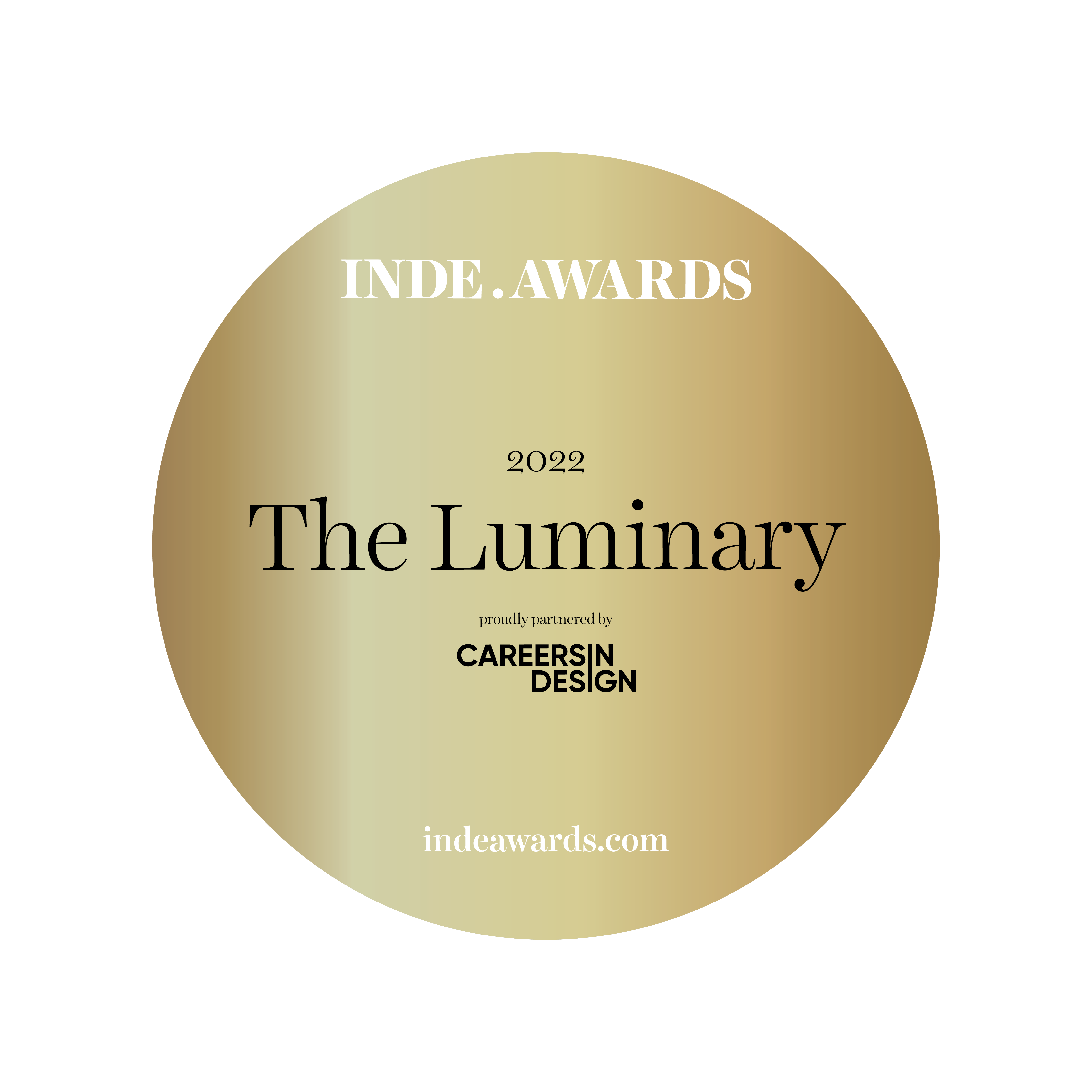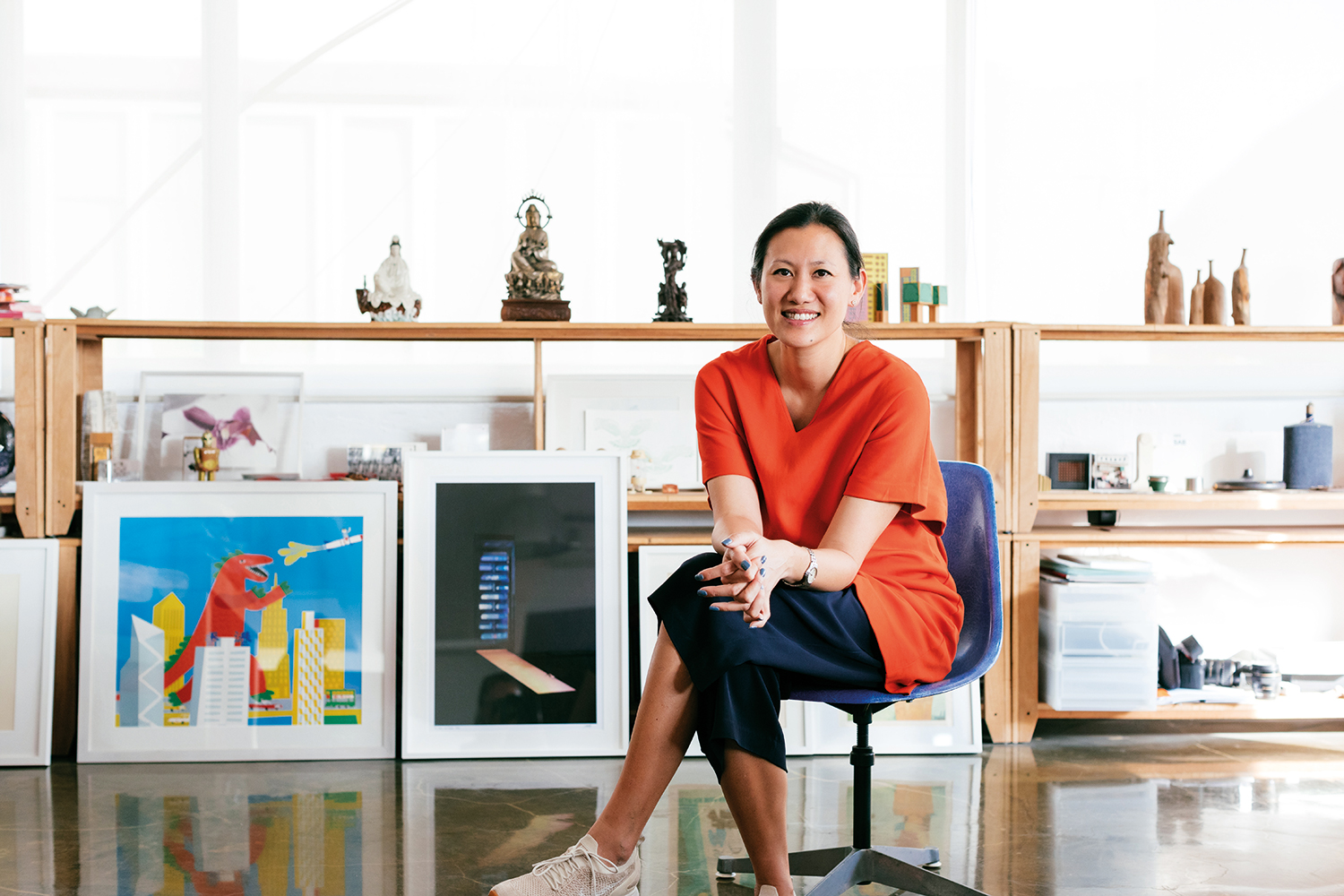Marisa Yiu
ESKYIU
Hong Kong

Marisa Yiu is in a rare, reflective mood when we meet. For the most part, she doesn’t have time to be reflective: she runs multidisciplinary architecture studio ESKYIU alongside partner Eric Schuldenfrei; she works tirelessly as Executive Director for grant-funding platform and creative accelerator Design Trust; plus she’s mother to almost-five-year-old twins.
“It’s like super Google Calendar and Excel sheets,” says Yiu of her life and how she juggles her responsibilities. “As a mother, you become more committed and efficient. You let yourself lose certain hours of the day, but there are moments when you just have to make sure you’re home in time, because you commit yourself to seeing the little ones.”
For Yiu, wearing many hats and balancing different interests is the modus operandi; it has been this way since she came back to Hong Kong from New York in 2007 and set up ESKYIU with Schuldenfrei.
More than designing with intent, Yiu says with reference to the theme of this issue of Cubes, “It should be ‘designing with intensity’… and rigour. With Design Trust, we’ve just been going, going, going; with Design Trust Futures Studio (DTFS), mentor-mentee think tanks, coming up with these amazing partnerships with Royal College of the Arts, empowering new curators to come on board. Now, we’ve done all this, but where’s the next growth plan?”
And this is where we find Yiu on a sunny December afternoon, introspecting at ESKYIU’s studio in Hong Kong’s creative precinct, Wong Chuk Hang, when the protestors are quiet. Much like her, they are probably reflecting on the tumultuous year that has passed, and pondering what is to come.
“There’s so much going on in Hong Kong. I’m thinking about what could be done, and how design could have a positive impact. Is it about education, or just inspiring people? How can we move forward without politicising everything?” she queries. “People want to see change, but it’s about knitting the right people together.”
For Design Trust, says Yiu, “2020 is about outreach and bringing more Design Trust positive community energy overseas.” One Design Trust grantee group from Shenzhen is working with female entrepreneurs in Africa, while others – Xavier Tsang, plus Julie Progin and Jessie Mc Lin, who created site-specific works for the DTFS 2019 exhibition Heritage is Innovation at historic Hong Kong site Haw Par Mansion – have been selected to represent Hong Kong as part of a showcase at this year’s Milan Design Week.
“DTFS is really fascinating to watch,” says Yiu of the pilot program, which uses a mentor-mentee system to explore materials and production, and which gets the community involved in order to transform public spaces. “Some mentors are much more rigid and want to meet their mentees regularly. And then there are other models where it’s, ‘You guys figure it out, it’s up to you, we’ll advise and critique you.’ Either way, by questioning and dialoguing, or by having a conversation or being inspired by this amazing architect, one sees their own frame of reference changed.”
In Yiu’s world, challenging that frame of reference and questioning the status quo seem to be a constant. “I like being surprised by the results rather than saying ‘It has to be like this.’”
The DTFS 2018 project Play is for the People has provided an example of this in practice. Design mentees met with stakeholders and the community to understand how they could rethink some of Hong Kong’s parks. “It involved a lot of talking and dialoguing, bringing people together and really questioning expertise. How can we continue to learn regardless of age or demographic?” she recalls. Yiu hopes that a couple of the park concepts developed by the mentor- mentee teams will be built this year. “If even one gets built within 2020, I’ll be celebrating,” she says.
Yiu hasn’t just been busy with DTFS, however. ESKYIU has also been keeping her highly occupied. “We’ve got this mega-project that’s about to launch – a 22-storey building in North Point. We’ve been working on it as interior designers for four-and-a-half years. We’ve managed to work closely with the architecture team and impact the exterior, and we’ve added another layer of conceptual programming. We were asked to write the brief with the client for that project, which was really cool,” she explains.
And this, for Yiu, is the heart of it: designing within constraints and limitations that you can’t change, while still having the freedom to push the boundaries and find new ways to bring value to various communities through design. “You’re designing with a goal in mind,” she says. “But it only gets really interesting when you’re able to create something beyond that intent.”
Copy by Tamsin Bradshaw, featured in CUBES Magazine #98

